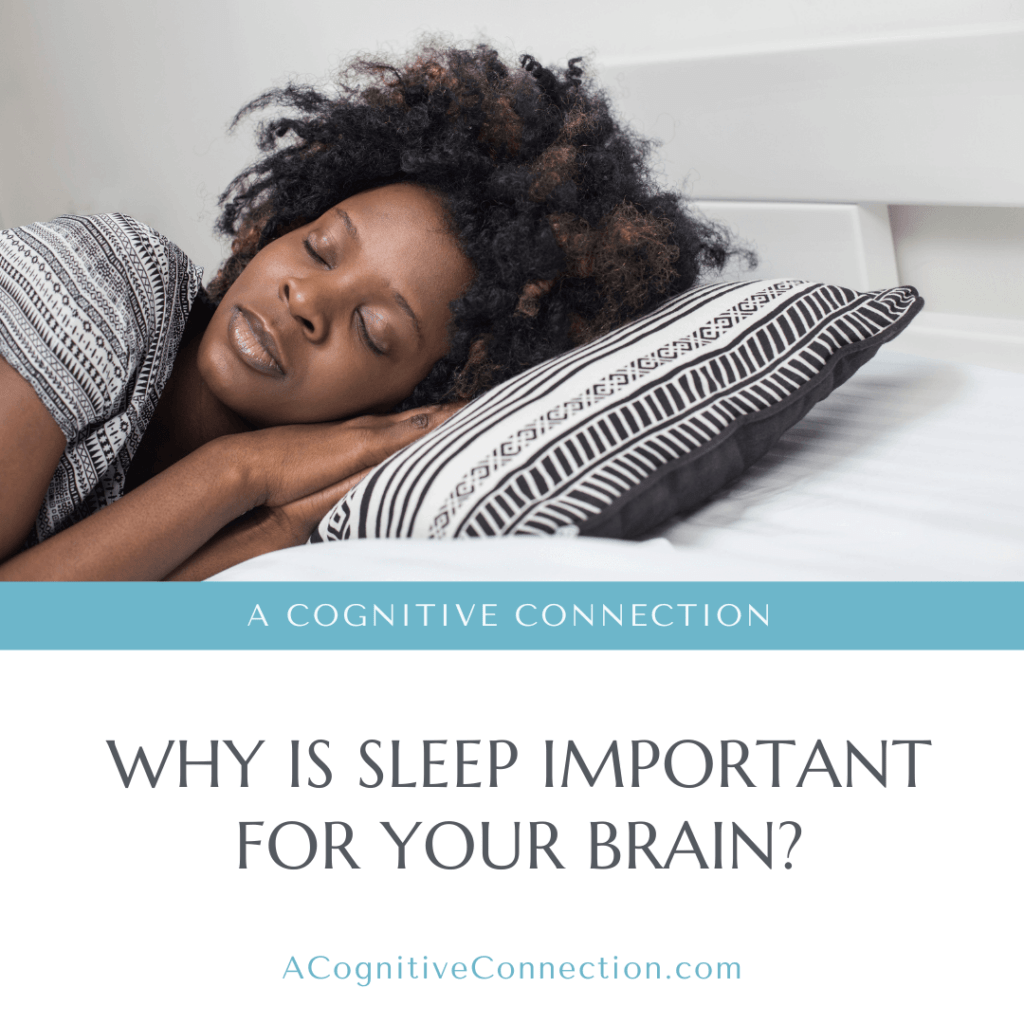Have you ever had a difficult night’s sleep and felt the effects the entire next day? You probably felt a little out of it and had difficulty focusing on simple tasks. It seems challenging to do everyday tasks because your brain needs time to recuperate at the end of the day and process everything that’s happened.
In fact, researchers have found that our brains flush out dangerous proteins while we sleep. While you sleep, a fluid runs throughout the cells in your brain and removes any toxic proteins built up throughout the day. This essential process happens during sleep because our brain cells shrink during that time, creating space for the fluid to flow.
At A Cognitive Connection, we help you understand how your brain functions and what you can do to strengthen your brain’s capabilities. As a center for cognitive and behavioral health, we help the individuals of Colorado Springs learn more about their brains to understand their actions and behaviors better. The more you know the “why” behind your behaviors, the more control you have to live a healthier and happier life.
Why Is Sleep Important For Memory?
Sleep plays a crucial role in learning, memory, and creativity. When you sleep, your brain prepares for what’s to come in the day ahead. So the more rested you are, the better you can pay attention and focus on what’s happening.
Your brain is prepared to make new memories “stick” when well-rested. At night, when you’re sleeping, your brain runs through everything that happened throughout the day, which strengthens your neural connections. Strong neural connections allow you to remember what you experienced while awake.
What Is A Sleep Cycle?
During a sleep cycle, your brain flows through each of the sleep stages. If you’re sleeping roughly seven or eight hours a night, your brain is going through about four to six sleep cycles.
During the first stage of sleep, you’ll go through the phases in order. However, as the night goes on, you may shuffle through the stages. For example, you could be in REM sleep and jump to light sleep and then deep sleep.
What Are The Stages Of Sleep
Sleep cycles consist of four stages: awake, light sleep, deep sleep, and REM sleep. Each phase of sleep helps maintain your mental and physical health.
Phase 1: Awake
- The awake phase is the time you’re in bed before and directly after falling asleep. This phase also includes when you wake up briefly in the middle of the night.
Phase 2: Light Sleep
- Light sleep guides your body and brain into deeper stages of sleep. During this phase, your body experiences physical changes. Some of these changes include your muscles relaxing or twitching, slowed breathing, a decrease in heart rate, and a drop in body temperature.
Phase 3: Deep Sleep
- During the deep sleep phase, your body restores itself and recuperates after the day you’ve had. Your body also experiences physical changes during this phase, such as a drop in blood pressure. While in a deep sleep, your body repairs its muscles, and your brain flushes out toxic waste. In addition, your brain waves are slow during this phase, and you’ll most likely feel disoriented if you wake up from a deep sleep.
Phase 4: REM Sleep
- During the last phase of sleep, your mind is re-energizing itself. Some things that happen during this phase include increased respiration and heart rate. You may experience vivid dreams, and your body becomes immobile to prevent you from acting out your dreams. REM sleep benefits memory, problem-solving, and learning.
What Is The Average Time In Each Sleep Stage?
During the night, you spend the most hours of sleep in the light sleep phase. But how much time you experience REM sleep or deep sleep can differ from person to person. However, on average, people usually spend 2-5 percent of their sleep cycle in the awake phase, 45-55 percent in the light sleep phase, 13-23 percent in the deep sleep phase, and 20-25 percent in the REM sleep phase.
How Does A Lack Of Sleep Affect Memory?
Without an appropriate amount of sleep each night, you may experience trouble with learning new things, memory, problem-solving, processing your emotions, and your judgment.
Without proper sleep, your brain doesn’t have adequate time to recuperate, and the neurons become overloaded. Poor sleep can be either a short sleep duration or interrupted sleep. Insufficient sleep makes it nearly impossible for you to complete sleep cycles healthily.
Studies show that sleep deprivation can lead to long-term memory problems and a decline in cognitive abilities. In addition, it’s believed that those with long-term sleep issues have a higher risk of developing dementia. So, getting a good night’s sleep is vital for both your short-term and long-term cognitive performance.
Understand The Importance Of Sleep With A Cognitive Connection
At A Cognitive Connection, we’re passionate about helping you learn and better comprehend all aspects of cognitive and behavioral brain functions. As cognitive experts, we know that the more you understand how your brain works, the better prepared you are to help your brain improve its abilities.
Whether you want to learn how to get a better night’s rest or are interested in learning more about the correlation between sleep and mental health, our experts are here to help you! Schedule a free consultation with our team to discover more about how your brain works and how you can help support it as much as possible.


